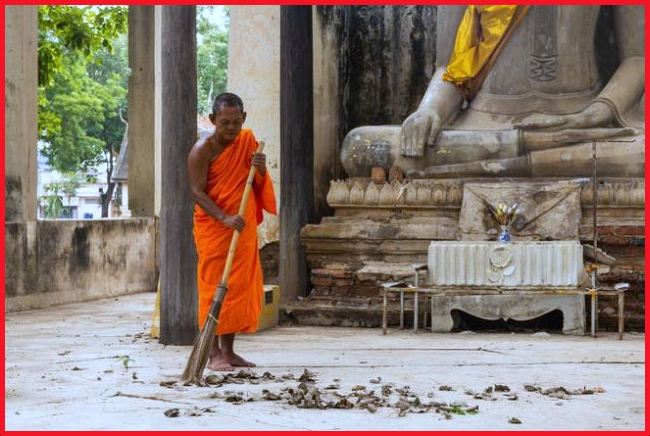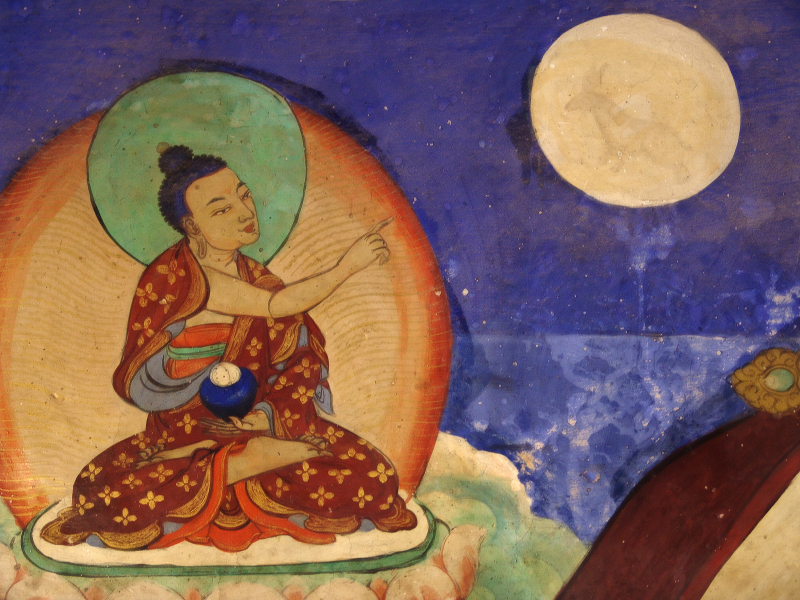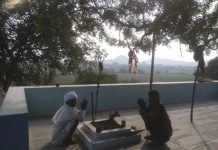An ‘overworked’ monk in Japan accuses his temple authorities of ‘workplace harassment’ and demands a compensation of US 78,000- when religion is turned into a gigantic bureaucratic machinery it becomes ‘irreligious’.
The New Leam Staff

Religion and spirituality throughout the world are thought to be domains that allow the individual to move beyond the temporal, mundane and world passions and take a pilgrimage for self-discovery. Religious scriptures of all religions in the world speak in some way or the other about the temporarily of life and death, the passions that must be overcome to realise God and how each and every action that one performs shall be seen as an offering to the cosmic creator.
It is believed that a religious person or a spiritual person relates to others with compassion, has clarity in his vision and does not run behind what the world gives most priority to like money, fame and power. It is paradoxical that although most religions of the world talk about the higher choices of life and elevate the seeker from immediate greed, power driven choices often religion in it institutionalised, bureaucratized form seeks to alienate the seeker rather than elevate.
Large scale religious bodies that have a hierarchical division of labour, that differentiate between seekers and operate more like a modern factory than a centre for religious search- often function in a similar way as a corporate company, alienating, supressing, exploiting, mistreating its workers. Religion as a bureaucratic system can be oppressive and can lose its very purpose.
In Japan that is obsessed with efficiency, extended hours of work in its industries, factories and companies – the same culture, the same attitude has also penetrated into the religious aspect of the culture. It was recently reported that a monk in Japan was burdened with such a heavy workload that he underwent depression and is now suing the monastery in which he was involved.
The monk is seeking 8.6 million Yen (USD 78,000) from his temple on Mount Konya, which is also a world heritage site. The monk began working in the monastery in 2008 and by 2015 he went into serious depression after he was given enormous loads of work without rest. He would be working for over 18-20 hours a day and would be denied any time for relaxation. The monk has accused his temple of workplace harassment. Death related to overwork is a common phenomenon in Japan but the way things happened amidst the monk and the monastery are indeed rare.
The monastery’s tendency to compel workers to work beyond their bodily and mental limits, the denial of minimum rest and spare time and the overemphasis on speed and work have made the Japanese society a sick society. The monastery is also part of the larger social order and it is not surprising that such a culture also penetrates into it. What is also strange is that a supposedly spiritual person such as this monk can think of asking for justice only through monetary compensation for himself.
This case is indeed paradoxical and it reminds us how far we have come from the real essence and significance of religion and how it has been reduced into a mere business, a sort of corporate machinery that is inhuman and cold. In India itself we can see numerous examples of self-acclaimed spiritual gurus who loot and exploit ordinary persons claiming religious merit.
People have to recognise that these persons have nothing to do with religion and that they are most far removed from its essence. It is paradoxical that despite the countless valuable lessons that religions of the world have taught us, we have reduced them to manipulative traps to meet selfish needs. The greater ethical and cultural symbolisms, the decadence of morality and the overwhelming reach of the market culture need to be addressed seriously in this context.
***













